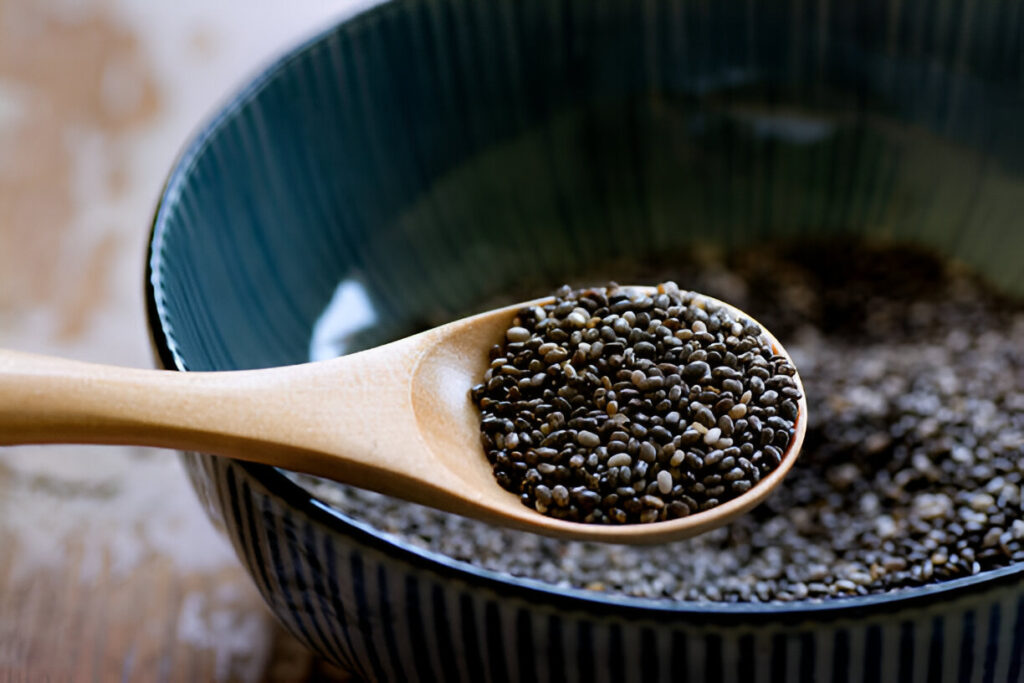Once just a staple in the diets of ancient Mesoamerica, chia seeds have soared in popularity as a modern superfood. These tiny seeds pack a significant nutritional punch, with abundant health benefits ranging from improved digestion to heart health support. Integrating chia seeds into your daily regimen could be a small change with large effects on your overall well-being. This might be the answer if you’re seeking a simple way to enhance your diet. Below, we delve into the whys and hows of making chia seeds a part of your meal prep services.
Contents
Unveiling the Nutritional Powerhouse: Chia Seeds Explained

Chia seeds are remarkably nutrient-dense, boasting a high content of omega-3 fatty acids, antioxidants, minerals, and vitamins. Their omega-3s come in the form of alpha-linolenic acid (ALA), which plays a crucial role in maintaining cell membranes and reducing inflammation. Unlike flaxseeds, chia seeds do not need ground to access their nutrients, making them easier to incorporate into various dishes.
Rich in essential minerals like calcium, phosphorus, and magnesium, chia seeds contribute to bone health and energy metabolism. Their impressive vitamin profile includes B vitamins necessary for energy production and maintaining proper bodily function. Furthermore, these seeds are a complete protein source, containing all nine essential amino acids, uncommon in plant-based foods.
Chia seeds’ antioxidant properties are another reason to tout their benefits. They contain flavonoids, which help protect the body from free radicals, oxidative stress, and potentially even chronic diseases like cancer. With such a comprehensive range of benefits, it’s little wonder that they are hailed as a superfood. Visit nutriseeds.com if you’re looking to buy apricot seeds.
Boosting Digestive Health With Chia Seeds’ Fiber Content
The high dietary fiber content in chia seeds can profoundly impact digestive health. Each serving offers substantial fiber for maintaining healthy digestion and regular bowel movements. Fiber helps bulk up stool and prevents constipation, but that’s not its only role within the digestive system.
Insoluble fiber, one of the two types found in chia seeds, aids food movement through the digestive tract and enhances bowel health. Conversely, soluble fiber can absorb water and form a gel-like substance, improving satiety after meals and curbing overeating. This balance of fibers contributes to a well-functioning digestive system.
The fiber in chia seeds also serves as a prebiotic, feeding beneficial gut bacteria, which is vital for gut health. A healthier gut microbiome is associated with a stronger immune system and may improve mood and cognitive function. For those aiming to optimize their digestive health, incorporating chia seeds into one’s diet could be a strategic move.
The Role of Chia Seeds in Weight Management and Metabolism

Chia seeds have drawn attention to weight management for their potential role in promoting weight loss and a healthy metabolism. The fiber content in chia seeds contributes to a feeling of fullness that can help control appetite, a significant advantage for those watching their weight. Feeling satiated for longer periods may reduce snacking and overall caloric intake.
Chia seeds can also absorb several times their weight in water, contributing to the sensation of fullness and potentially leading to less calorie consumption during meals. This unique property can assist those attempting to follow a calorie-restricted diet. Additionally, the protein in chia seeds can boost metabolism and reduce food intake by fostering the feeling of satiety.
Despite their promise in weight management, chia seeds are not a magic bullet. They work best with healthy lifestyle choices like a balanced diet and regular exercise. Incorporating chia seeds as part of a varied diet can, indeed, aid in achieving and maintaining a healthy weight.
Enhancing Bone Strength and Overall Well-Being With Chia Seeds
Chia seeds are conducive to bone strength due to their high content of bone-supporting minerals such as calcium, magnesium, and phosphorus. Calcium is well-known for its role in bone health, and chia seeds are an excellent plant-based source of this essential mineral. For individuals with dietary restrictions, chia seeds offer a way to ensure adequate calcium intake without consuming dairy products.
Magnesium and phosphorus also support bone structure and strength. These minerals and calcium work synergistically to promote bone density and may help prevent osteoporosis and other bone-related conditions. Chia seeds can be integral to a diet that bolsters skeletal health and mitigates age-related bone loss.
Overall, chia seeds represent a simple yet substantial addition to a healthy lifestyle. Their wide range of benefits, from digestive to bone health, positions them as an excellent supplement to any diet. Whether you want to improve heart health, manage weight, or support bone density, incorporating chia seeds into your routine could make a notable difference. These tiny seeds promote overall well-being and deliver nutrition in each small package.



